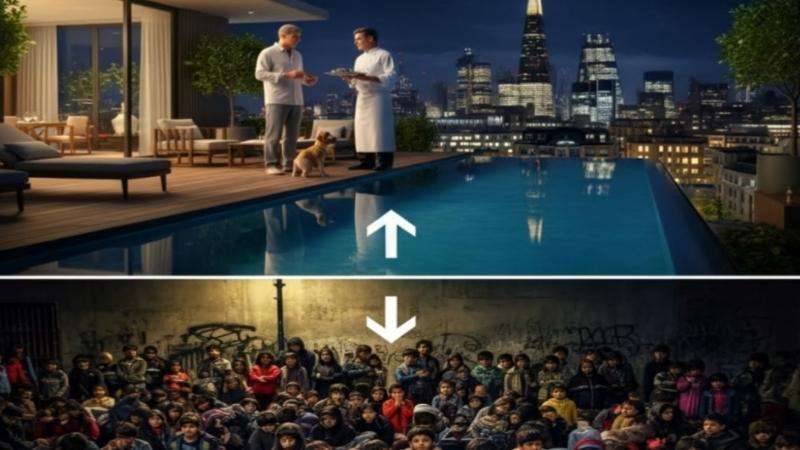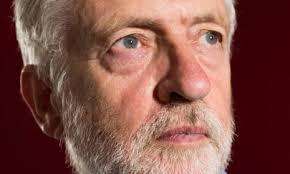One year into government, Sir Keir Starmer's Labour administration is facing mounting criticism over the UK's economic health, as opposition parties, and a growing number of the public, question his "pride and achievement" message.
In the face of Reform UK's surging popularity, Sir Keir Starmer is attempting to push back against a narrative that "Britain is broken." Yet, a closer look at key economic and social data reveals a series of challenges that have worsened on his watch, raising questions not just about the Prime Minister's performance, but about who bears the ultimate responsibility for the nation's struggles.
While a Labour source insisted that the Prime Minister does not share Reform's gloomy outlook, the hard numbers tell a different story, and the public is taking notice. A recent YouGov poll shows Sir Keir's favorability ratings have dropped to just 23%, and a separate Ipsos poll found that half of Britons are "disappointed" with the Labour government's performance so far.
Economy: A Legacy of "Boom and Bust"?
Chancellor Rachel Reeves' claim of "fixing the foundations" is met with skepticism as the UK battles persistent economic headwinds. The latest data shows inflation rising to 3.8% in June, the highest since January 2024, far from the Bank of England's 2% target. Compounding this, the UK's unemployment rate reached a four-year high of 4.7% between April and June 2025.
The responsibility for this complex economic picture cannot be placed solely on the current government. The public mood, as reflected in online forums and surveys, suggests a shared blame for the long-term economic instability, which many believe dates back to the 2008 financial crisis. As one commenter put it, "The country has been in a mess since 2008 and has always seen 'boom bust' scenarios."
However, the current administration's actions are also under scrutiny. Public borrowing has climbed to £60 billion since April, a figure that has drawn criticism from the Shadow Chancellor, Sir Mel Stride. Business closures, particularly among pubs and farms, are at a record high, a trend critics link to the £40 billion in tax hikes introduced by Ms. Reeves. The upcoming budget, with a potential £50 billion public finance "black hole" to fill, suggests more pain for taxpayers is on the horizon.
Housing and Migration: Unmet Pledges
The government's flagship promise to build 1.5 million homes is already off track. Housing completion data shows a significant drop in the first year of Labour's term, with 90,610 homes completed between July and December 2024, falling short of the required 150,000 to meet the target. Property sales have also plummeted to a 20-year low in April 2025, excluding the lockdown period, with only 30,000 transactions recorded.
On immigration, Sir Keir's promise to "smash the gangs" has been overshadowed by a record number of Channel migrant crossings. So far in 2025, just under 28,000 migrants have arrived by small boat, a figure that is more than 30% higher than the previous peak in 2022. Asylum claims also hit a record high of 111,084 in the year to June 2025, a 14.4% increase on the previous year. The number of asylum seekers housed in hotels has also risen by nearly 2,500 in the past year.
These figures challenge the narrative that the new government has a handle on the borders. As a public comment highlights, "More money to France, we are paying them to take one and paying to receiving one." The public is questioning the efficacy of the new "one in, one out" deal with France, which has so far failed to curb the numbers.
NHS and Trade: Disputed Progress
While the government boasts of progress in the NHS, the data remains contested. The health service backlog, while falling slowly, rose by 10,000 in June to 7.37 million. Critics allege the figures are "misleading," citing the removal of "unreported removals" from the waiting lists. A&E wait times have seen only a marginal improvement, with just over 66% of patients seen within four hours. The government's own Health Secretary, Wes Streeting, has previously declared the health service "broken."
Despite Sir Keir's international travels and focus on diplomacy, his trade deals have also come under fire. The pact with the US is projected to boost the economy by a mere 0.1%, and critics say it has already led to the closure of a British bioethanol factory. The trade deal with India has been criticized for exempting some Indian migrants from National Insurance, creating a perceived "two-tier tax system" just a month after British businesses faced a rise in their own contributions.
The public's disillusionment is palpable. As one commenter noted, "Starmer insists Britain is not broken, yet for the past year all we have heard from Labour is inherited, chaotic, broken this broken that. So if they have fixed it, why is it we can't see it?" This sentiment underscores the core challenge facing the Labour government: a disconnect between its rhetoric of "pride and achievement" and the lived reality of many Britons. The question of who is truly at fault for the nation's woes, whether it's the inherited problems from the previous administration or the policies of the new one, is a debate that is only just beginning.



_2.jpg)
_3.jpg)


.jpg)
.svg)



